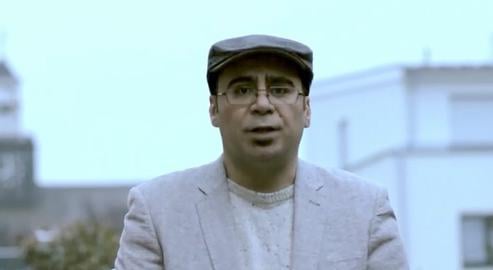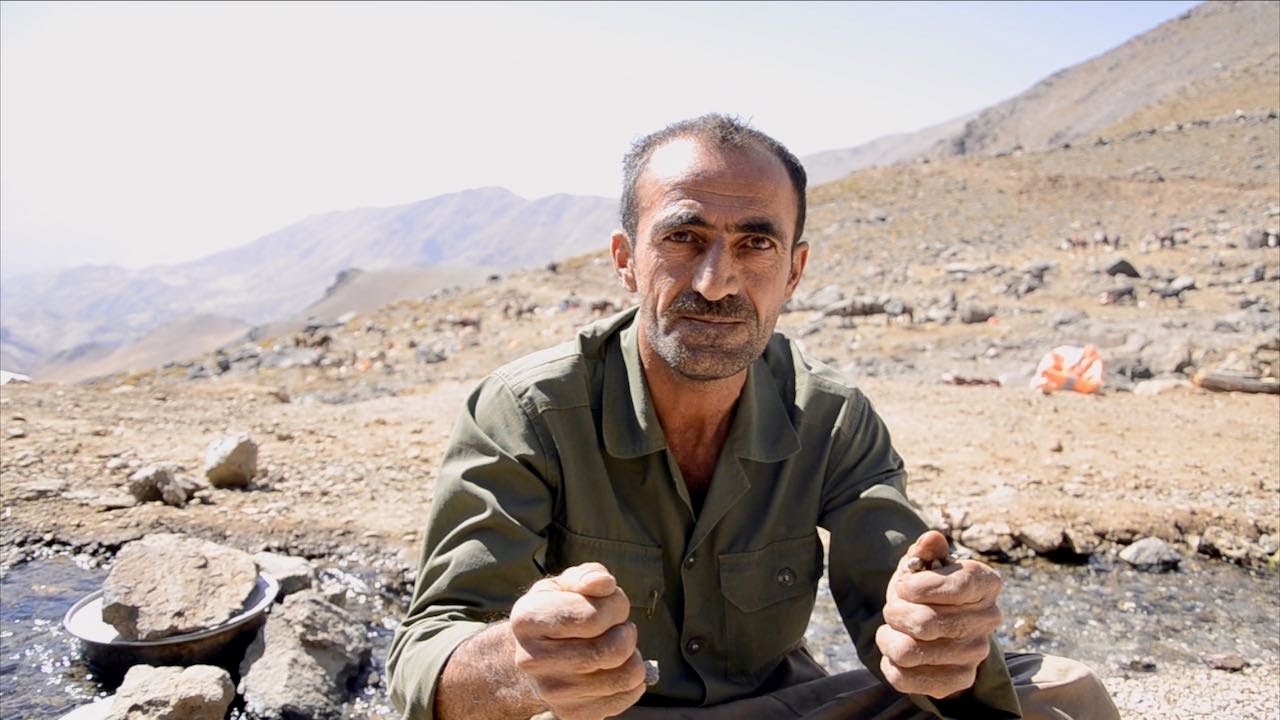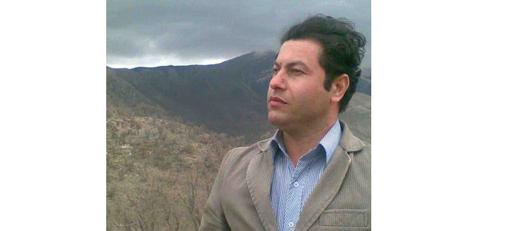They Shoot Kolbars, Don’t They? is a new documentary shedding light on decades of poverty and discrimination in one of Iran’s most remote and little-understood regions. Directed by Jamshid Bahrami and produced by IranWire’s Maziar Bahari, the film tells the stories of Iranian kolbars or border couriers, in their own words.
Bahrami is an Iranian Kurd who was born in 1981 in the city of Marivan, Kurdistan. From around 1994 he worked as a kolbar himself and photographed his companions. In 2007, he was arrested by security agents while preparing for the Fajr International Film Festival and banned by Sanandaj Intelligence Office from continuing his education. He finally left the country in 2012 and now resides in Frankfurt, Germany.
While Bahrami was inside Iran, he was not able to make a film about the kolbars due to political restrictions. But recently he asked his friends in the country to film them instead, and the footage they sent across to Europe is the basis of this new film.
To mark the release of the film, we spoke to Jamshid Bahrami about the project and what he hopes it will achieve. You can download They Shoot Kolbars, Don’t They? here.
***
How did this documentary come about?
I am a visual arts graduate and had some experience in making short films. For example, I made a short film about the referendum that took place in Iraqi Kurdistan [for independence from Iraq, in 2017]. For many years I was eager to make a documentary about the kolbar. But it wasn’t possible until IranWire gave me the opportunity. I grew up with this subject as a filmmaker and it was part of my life these ideas might not otherwise have seen the light of day.
Is making a film different when you’re not physically present with the subjects?
Yes. Directing a documentary remotely comes with its problems. It's hard to coordinate with your friends and guide them to capture the images you want. Of course, they had a lot of difficulty recording the videos too.
What were these difficulties?
As I mentioned in the documentary, filming kolbars is a crime in Iran, and videographers and those involved can be subject to various charges. Sometimes the camera operators had to go to the borders of Iraqi Kurdistan and then turn back, waiting for the kolbars to return from Iraqi soil, where they would be interviewed.
How long did it take to make the film?
Before the coronavirus outbreak, I had made arrangements to get started, but then the epidemic put a stop to it. For some time the border between Iran and Iraq was closed, and we had to stop work until it reopened. We started shooting in the areas of Oramanat, Baneh, Sardasht and Piranshahr. If you watch the movie, you’ll notice the footage from different places. And if you pay close attention to the dialect of the kolbars, they sound different because they belong to different geographical areas of the three Kurdish provinces.
What was the most important principle in making this film?
The issue of honesty in depicting a kolbar was important to me. I wanted to display the lives and work of the kolbars without exaggeration. I felt that what really exists is painful and significant enough, and does not need to be magnified.
In the film, you’ll notice that every effort has been made not to influence them. I kept urging the cameramen to record only what was there and what was really happening. Of course, in the words of the late Abbas Kiarostami, “no documentary is a documentary” because the filmmaker often justifies and implicitly directs the characters he wants to highlight during the film. I have tried my best to avoid this, and to allow the atmosphere to be completely original and as it was at that moment, and not to interfere with the emotions of those standing in front of the camera.
In the film, you say that you yourself have kolbari experience.
As a teenager, I worked as a kolbar several times. When I think back on it now, I see the image of hell there: of going to hell and back, for a small amount of money, during a snowy winter.
When one is not directly confronted by a kolbar, one has no idea what it means. When I showed my German friends a section of the film, they could not believe it. They said, "Is it even possible for anyone on this planet to grab a refrigerator – and then move it with him along dangerous foot paths, for miles?" My son, who sees my preoccupation with this topic these days, asks me what kolbar means. I really have no explanation for him. But this is not the case in the region: people survive by doing this job. Kolbars unload their bundles in the markets of Kurdish cities, and anyone living in Kurdistan is constantly faced with this phenomenon. It's not just about crossing the border and transporting cargo; it's a process that constantly holds your life in the balance.
You were born in this area and understand its features; why has a phenomenon like kolbari emerged in Iranian Kurdistan?
Kolbari did not exist in the form you see it today before the Islamic Revolution. Kolbari still doesn’t exist today, even half an hour outside of Iran. After Iranian kolbars transport goods across the border, potentially risking their lives, they then transport the load to warehouses. From there, they are distributed by car in Iraq. But the main reason for the growth and expansion of kulbari in Kurdistan is the regime’s securitization of this province: an approach that has caused terror, poverty, destruction and the annihilation of its economic infrastructure.
Are Kurdish investors not interested in creating jobs in this province?
The propaganda that the Islamic Republic has staged against the Kurds – about their co-called efforts to create insecurity in this province – is what causes their reluctance today. They prefer to invest their money in Germany, Turkey, and other states. For this reason, Kurdistan never flourished after the Iran-Iraq war.
The kolbari phenomenon only intensified from the beginning of the Islamic Republic on. We were at war. In Kurdistan, it was not just the Iran-Iraq war; it was the war of the government against political parties that had emerged from the heart of Kurdistan. I lived in a neighborhood in Marivan where each family had at least one peshmerga to protect them. Everyone was some kind of political activist. Many of them were forced to flee the country, and those who from time to time returned to visit their families were killed in the most tragic way.
In Kurdistan, the duty of the local task forces was to confront the political activists. This had devastating effects on the people of this area and many were killed on both sides of the conflict. I will not forget the war of Komalah [Iranian Kurdish communist party] and the Democratic peshmerga against the forces of the Islamic Republic, which I witnessed as a child. There was no electricity at night; we huddled in a corner of the room away from the window to avoid being shot.
These have been factors in the ongoing poverty of the province. Why is there no such phenomenon in Iraqi Kurdistan? Because kolbari was the atonement for Kurdistan's protests. The people of this province never said yes to the Islamic Republic.
You say would-be investors don’t feel safe. But why does the government not take action to create jobs?
They are the ones who have caused the lack of investment in this province in the first place, and naturally do not want to invest in governmental jobs in the area. On the one hand, they do not want to eliminate the kolbars; on the other, over the years, we have witnessed many unexplained shootings of these people.
Does the Islamic Republic want to expand kolbari?
Just as they are abusing the law of qisas (“retribution") for political executions, they are using kolbars to justify the hostile attitude and lack of investment and growth in Kurdistan. If the Islamic Republic is against kolbars, why are they promoting “Baneh Tours” all over Iran? People flock to Baneh to buy these “smuggled” goods. So, kolbari is bad but the goods they import are not bad?
Meanwhile, in fact, 98 percent of actual smuggling takes place through the principal, legal thoroughfares of the country and there is no will to control it. That means at most, kolbars are responsible for less than two percent of all smuggling in Iran.
Related coverage:
visit the accountability section
In this section of Iran Wire, you can contact the officials and launch your campaign for various problems



























comments